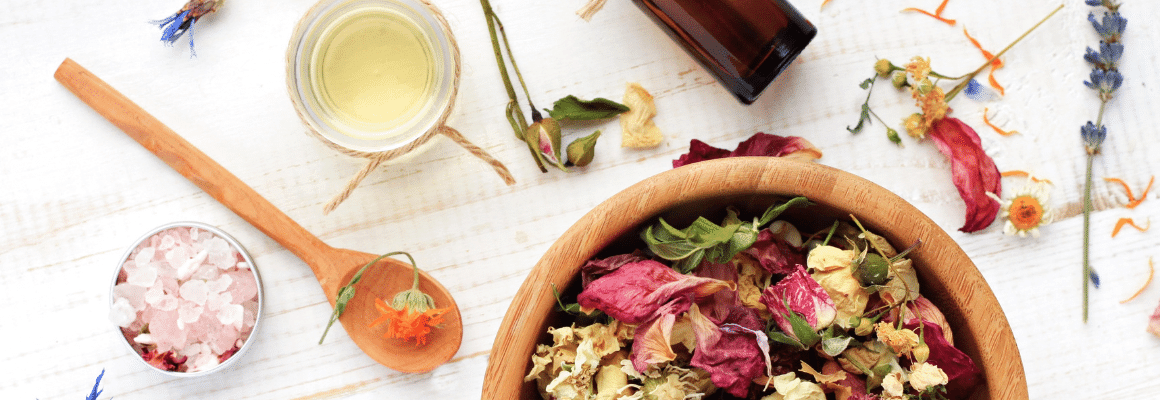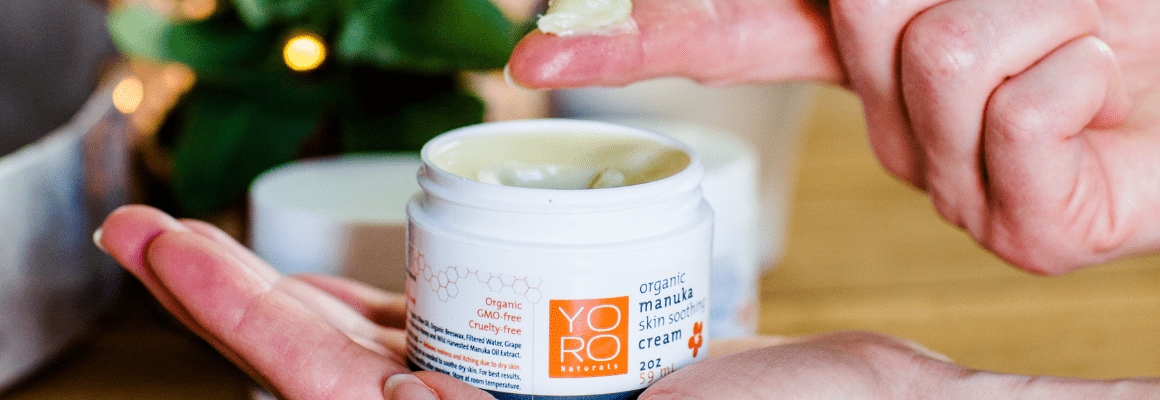Natural Remedies for Itchy Skin All Over
Are you suffering from itchy skin all over your body? Then this article is for you. Read on to learn about potential causes of your itch and how you can soothe symptoms with the help of natural remedies.
Why Am I Itching?
You’re trying to fall asleep and there’s that irritating sensation on your back. You’re seated at your desk and there it is again, this time on your arms. You’re eating dinner and you feel that incessant itching all over your body. You think to yourself: why am I itching? That’s a very good question and there may be more than one right answer to your itchy rashes.
To start with, itchy skin - also known as pruritus - could be a sign of dry skin. This is one reason why many people experience a heightened itching sensation during the winter when the air is cooler and humidity levels are lower. You may also notice that you feel itchier after a hot shower. This is because prolonged exposure to water, especially hot water, has a tendency to further dry out the skin by stripping it of its protective oils.
Age may also have something to do with it. As the body ages, your pores naturally produce less oil. This leads to dry skin and as a result, increased itchiness. Research says that 50 percent of adults over 40 years old suffer from dry skin. In addition, itchy skin is associated with pregnancy. Due to a change in hormones, the skin loses elasticity and moisture as it stretches to accommodate the growing baby. However, while pregnant women usually experience itching on the stomach, the itching sensation can extend over the whole body including the arms, breasts, and thighs.
Another common cause of itching is allergies. When the skin comes into contact with an irritating substance, it can react negatively and a rash or itch may develop. Unfortunately, many potential allergens are typical household products that you likely use regularly including laundry detergents, cleaning products, cell phones, jewelry, and fabrics such as polyester and spandex. It’s also possible to develop an itchy rash when the skin reacts to an ingredient used in skincare or beauty products. This is because many products contain fragrances, fillers, or preservatives. We encourage you to shop for natural products and to always read labels to make sure the ingredients you are putting on your skin are clean and healthy. We also want to remind you that it’s very important to do a small patch test on your skin first before applying a new product all over your body.
It’s important to note that itchy skin can also be associated with certain diseases like HIV/AIDS, diabetes, and types of cancer like leukemia and lymphoma. Another prime cause of itchy skin is skin conditions like eczema. In fact, itching is one of the most burdensome symptoms of this chronic condition. Characterized by scaly patches, a red rash, and small bumps, eczema is an inflammatory skin disease that affects around 31.6 million people in the United States alone. While it usually first develops in kids, it can also appear at any age. The autoimmune disease is associated with a damaged skin barrier that has trouble retaining moisture. As a result, the skin becomes chronically dry which can lead to intense itchiness.
With all these potential causes, it can be difficult to determine the exact cause of your itchy skin. If you’re unable to figure out why, we encourage you to speak to a trusted source like your doctor or dermatologist. They can help you figure out the exact cause or causes of your itching through a physical exam or blood test. This is especially important when the cause of itching is related to underlying diseases like cancer, liver disease, kidney disease, or blood disease.
Symptoms of Itchy Skin
Wondering what itchy skin looks like? While symptoms can vary from person to person and depend on the degree of severity, itchy skin is often associated with redness, raised bumps, and scaly or dry skin. These symptoms will usually develop on the arms and legs, however, they can develop all over the body including the back, chest, stomach, scalp and hair, and hands. As it says on Medicinenet, the peculiar itching sensation, which can perhaps be described as something crawling on your skin, can be confined to a specific spot or be experienced all over the body.
If the skin is subject to relentless scratching, it may crack or bleed. Not only does this make the skin more vulnerable to infection as it provides a gateway for bacteria to enter the body, it can also lead to lichenification. This is when constant scratching causes the skin to develop a thick or leathery texture.
Finally, bear in mind that symptoms of itchy skin may go through periods of highs and lows. For example, you may notice increased flare ups in the winter when the skin is naturally more dry due to cooler temperatures. You may also notice that itchiness tends to worsen at night. This is because cortisol, the hormone responsible for controlling itch and inflammation, peaks at night, making itching more noticeable. On the other hand, you may go through periods where you hardly notice symptoms.
Finally, according to the AAD, you may also experience itchy skin without seeing a noticeable change in your skin’s appearance.
Natural Treatments to Soothe the Itch
We are strong believers that the best remedies to treat itching are natural. When you shop, be sure to read labels carefully and watch out for any harsh chemicals or toxins. This is especially important for people with sensitive skin as contact with harmful ingredients could cause a rash or negative reaction on your skin. Examples of harmful ingredients include parabens, phthalates, petrolatum, p-phenylenediamine (PPD) and artificial fragrances.
When it comes to putting your skin health first, less is more. That’s why we love this Nourish + Hydrate Manuka Balm. It’s made with just six, natural ingredients including the powerful Manuka honey. Native to New Zealand, manuka honey is renowned for its antibacterial properties thanks to a unique compound known as methylglyoxal. In fact, Active 16+ Manuka honey has 1000x more methylglyoxal than regular honey! Gentle and soothing, this moisturizing cream is perfect for people of all ages - including a child and baby. Medically reviewed, it’s safe to use all over the body. It can even be used on sensitive skin like the eyelids. Try this nourishing cream to treat eczema, dry skin, sensitive skin, diaper rash, rosacea, and more.
How Aloe Vera Can Help Itching
Aloe vera is a natural healing agent for all sorts of skin ailments and has been used medicinally for hundreds of years. You’ve probably used it before to care for a bad sunburn but it can do so much more. Thanks to the gel from its leaves, which contains over 75 different nutrients, aloe can help provide soothing relief for eczema or itchy skin. It also helps reduce inflammation, lessen pain or discomfort, and provide a much needed boost of moisture. Finally, thanks to its ability to heal wounds, aloe works wonders when healing cracked or broken skin. This can help reduce the risk of infection. To benefit from this natural solution, cut an aloe leaf and squeeze out the gel. You can also shop for it in skincare products, as it’s a prominent ingredient in many products.
Benefits of Apple Cider Vinegar
Is there anything apple cider vinegar can’t do? Containing acetic acid, apple cider vinegar is a natural wound disinfectant and antiseptic. That’s why so many people use it to treat a variety of skin disorders, including eczema. While there is no proof that apple cider vinegar can heal eczema, it can certainly help rebalance the skin’s acidity levels and reduce the risk of infection. It can also be used to reduce inflammation. It’s recommended to add two cups of apple cider vinegar in a lukewarm bath and soak the skin for fifteen minutes. You can also apply it as a hair mask, as apple cider vinegar is particularly useful in relieving an itchy scalp. To do this, mix one tablespoon of apple cider vinegar with 1/4 cup of sunflower oil and apply to the hair after showering. Just bear in mind that since vinegar is highly acidic, it should not be overused. We do not recommend using vinegar on open wounds. If you are unsure whether you should try vinegar on the skin, speak to your doctor first. If you experience a burning sensation or other uncomfortable symptoms, see your doctor as soon as possible.
Can Colloidal Oatmeal Help with the Itch?
First of all, what is colloidal oatmeal? Not to be confused with a breakfast cereal, colloidal oatmeal is a finely ground oatmeal that can easily dissolve in water. It’s good for skin health because it is rich in beta-glucans. This helps it soothe itchiness and reduce skin inflammation. A lot of people use colloidal oatmeal to treat eczema. That’s because its antioxidant properties help reduce flakiness, improve skin roughness and relieve the itch. To show your skin some tender loving care, we recommend drawing up a colloidal oatmeal bath. Start by grinding 2-3 cups of the oatmeal in a coffee grinder or food processor. Then pour the colloidal into the tub as the water is filling. Relax, enjoy, and don’t forget to apply the Organic Manuka Skin Soothing Cream all over your body when you’re finished!
Coconut Oil and Pruritus
At some point, your friend, coworker, or dermatologist (or all three!) has probably recommended coconut oil to improve your skin health. And there’s a reason why. This tropical fruit offers so many health benefits for the skin. Many people with eczema use coconut oil to relieve dryness and soothe itchiness. However, it’s ability to quickly penetrate the skin and provide a boost of moisture make it an excellent choice for people with dry skin in general. And if scratching damages the skin barrier, coconut oil can help reduce the risk of infection. Coconut oil can be used topically on the skin, or it can be taken internally. However, you can also draw up a coconut oil bath. We recommend using lukewarm water to avoid hot water further drying out the skin. Be sure to gently pat dry your body with a towel when finished as rubbing can irritate eczema symptoms. With all these benefits, it’s no wonder so many people are turning towards coconut oil as a natural alternative to treat their itchy skin!









